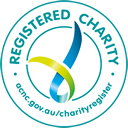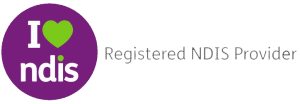September is Dementia Awareness Month and in light of that I’d like to share with you two interesting news stories from recent times relating to the detection and treatment of Alzheimer’s disease.
Alzheimer’s disease is the most common form of dementia in Australia, and in many countries worldwide. In Australia it accounts for around 70 per cent of all dementia diagnoses. Alzheimer’s disease is thought to be related to abnormal build up of proteins beta amyloid and tau.
There have been no new treatments developed for Alzheimer’s disease for over 20 years, and those that are on the market are only effective in limited cases and for limited symptoms.
What we do know is that changes in the brain begin a long time before symptoms become obvious. There is no simple way to diagnose Alzheimer’s. Accurate diagnosis can take several years and relies on a number of tests and cognitive measurements. By the time of diagnosis a person’s brain can already be significantly damaged by Alzheimer’s disease.
That makes both of these news stories particularly exciting.
The first is the development of a new blood bio marker test to measure levels of the protein tau in the blood stream. While we have been able to test for beta amyloid levels for some time, that hasn’t been a very accurate measurement to determine likelihood of Alzheimer’s. Some people carry abnormal amyloid levels and don’t get dementia.
The ability to measure tau (the protein that causes “tangles” in the brain in Alzheimer’s disease) along with amyloid measurement seems a much better indicator. It’s still early days and much larger trials need to be held but the early validation levels are promising that this blood test can reasonably predict if a person’s cognitive issues are being caused by Alzheimer’s, and also that abnormal pathology can be seen potentially up to 20 years before symptomology.
This will be helpful in the future as it may allow for pre symptom treatments to be developed that intervene prior to any cognitive damage occurring. Still a long way to go on that one though.
The second piece to hit the news is the application to the US Food and Drug Administration from Biogen for its Aducanumab drug intervention for Alzheimer’s disease. This is interesting as it is the first drug to be disease modifying for Alzheimer’s. Current interventions are designed to improve remaining brain cell functioning rather than ‘fix’ the damaged cells.
Results have been very mixed in the trials for the drug. Early last year an independent review of the trials determined there was insufficient evidence of improvement and Biogen stopped all research. A later review of the data seemed to show some benefits for a specific group in early stages of the disease receiving high doses, and it is this that has encouraged Biogen to apply to make it available. A previous application was turned down. It is important to note this isn’t a cure. In trials where positives have been claimed it is in slowing down the progression of Alzheimer’s disease, not eradicating it.
Until effective treatment or a cure can be found it is important that we support the 42,000 Western Australians living with dementia and those who care for them today. Dementia Awareness Month is an opportunity for us as a community to raise awareness about dementia and reach out to our family, neighbours or friends who may be living with dementia to offer them support.
If you are caring for a person living with dementia or worried about your memory call Alzheimer’s WA on 1300 66 77 88. We are Western Australia’s dementia expert organisation and we are here to help you with information, advice and support.

 Listen to this page
Listen to this page

